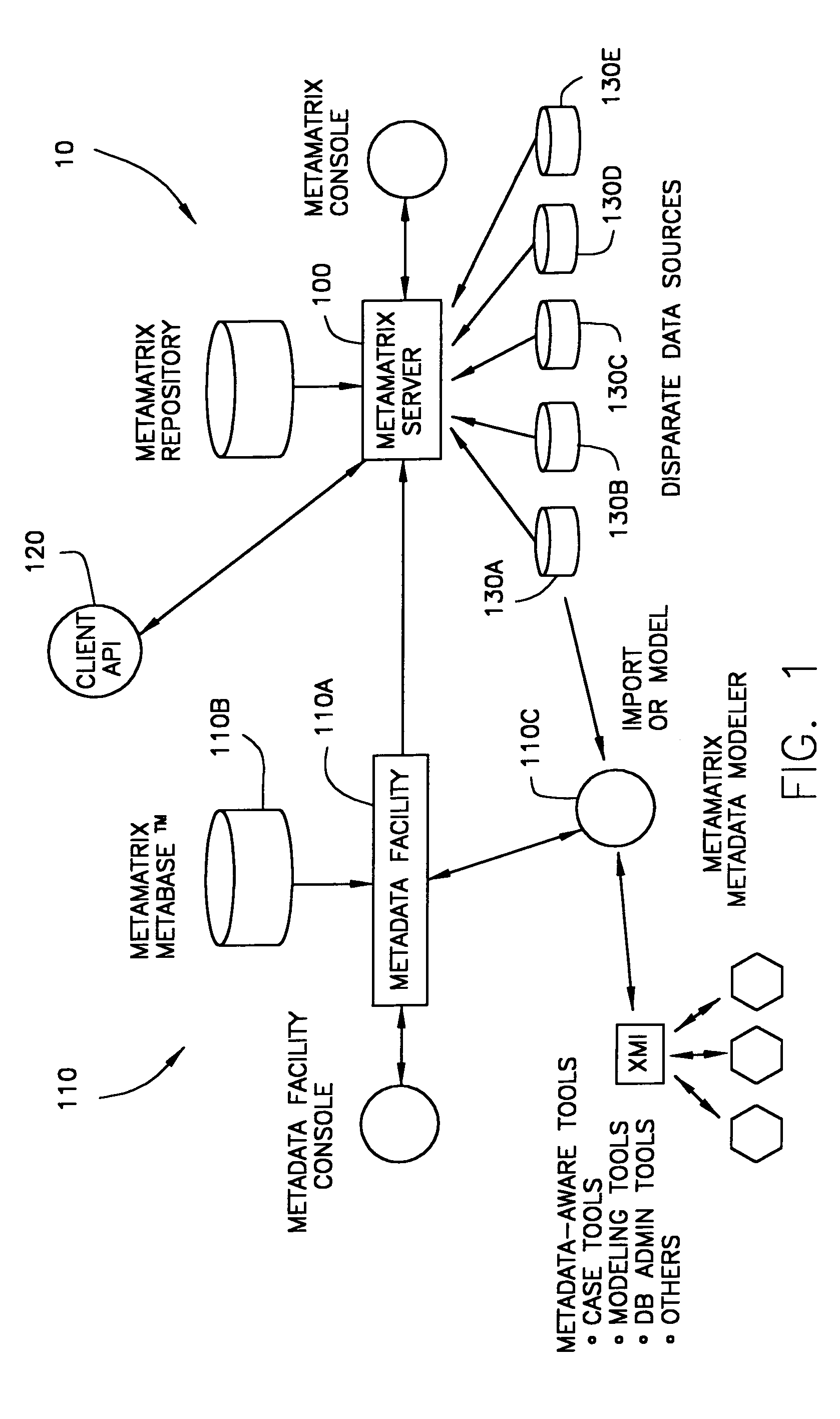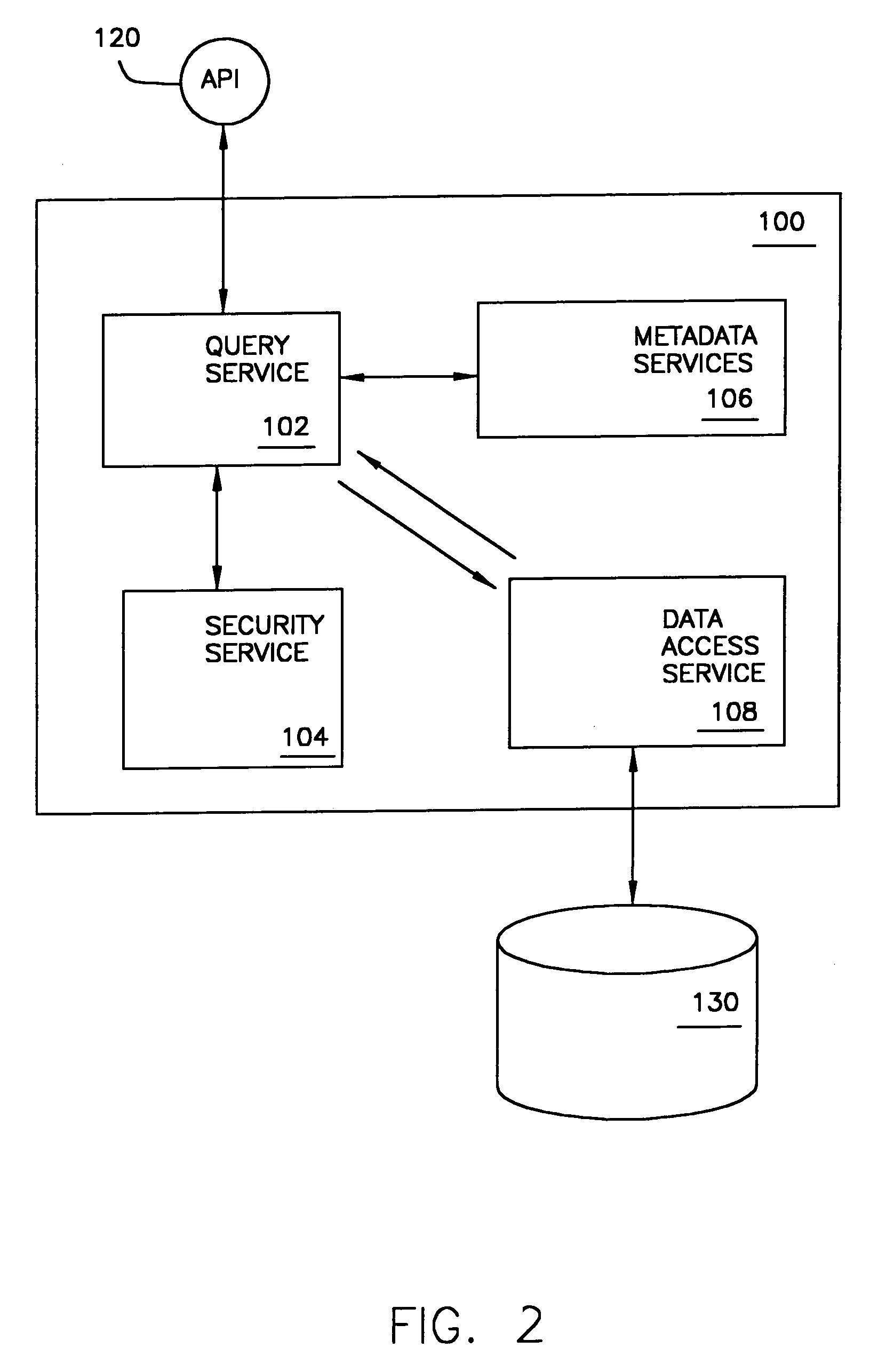System and method for accessing data in disparate information sources
a technology for disparate information sources and data, applied in relational databases, metadata-based other database retrieval, instruments, etc., can solve the problems of laborious conversion, difficult integration of data from one information system with data from another information system, and inability to be accessible simultaneously
- Summary
- Abstract
- Description
- Claims
- Application Information
AI Technical Summary
Benefits of technology
Problems solved by technology
Method used
Image
Examples
Embodiment Construction
[0047]The present invention, according to one embodiment thereof, relates to a system which employs metadata to integrate data from disparate information sources. As previously mentioned, metadata may refer to the names of the storage spaces in an information source, such as the various data field names or data table names in an information source. Thus, for instance, an information source may store data relating to a customer's name, address, social security number, etc. This data is arranged in data fields which are identifiable to a user of the information source by the names of the various data fields. These data field names, which identify the type of data which is stored in the data fields of an information source, are referred to as metadata.
[0048]FIG. 1 is a block diagram that illustrates some of the main components of the system of the present invention, in accordance with one embodiment thereof. System 10 comprises client application programming interface 120, which is cou...
PUM
 Login to View More
Login to View More Abstract
Description
Claims
Application Information
 Login to View More
Login to View More - R&D
- Intellectual Property
- Life Sciences
- Materials
- Tech Scout
- Unparalleled Data Quality
- Higher Quality Content
- 60% Fewer Hallucinations
Browse by: Latest US Patents, China's latest patents, Technical Efficacy Thesaurus, Application Domain, Technology Topic, Popular Technical Reports.
© 2025 PatSnap. All rights reserved.Legal|Privacy policy|Modern Slavery Act Transparency Statement|Sitemap|About US| Contact US: help@patsnap.com



